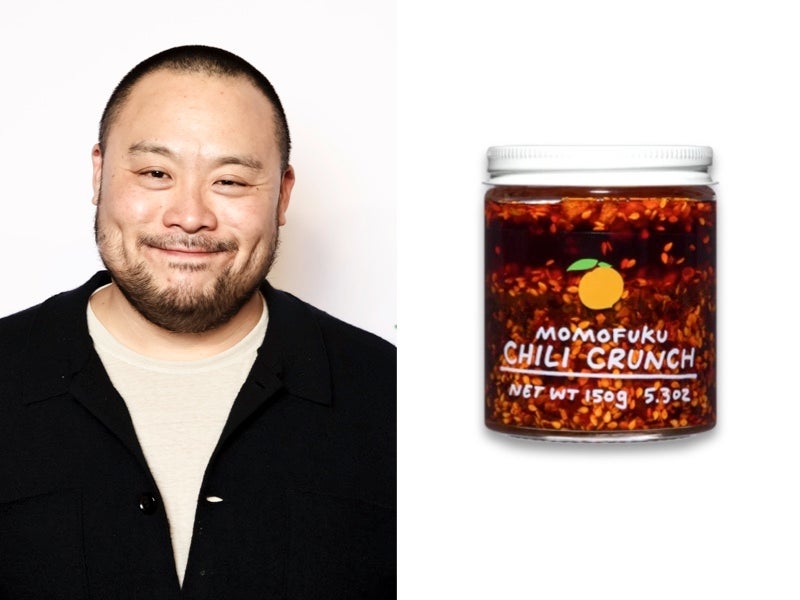The Independent's journalism is supported by our readers. When you purchase through links on our site, we may earn commission.
Momofuku restaurateur David Chang apologises for enforcing ‘Chili Crunch’ trademark
Momofuku founder David Chang has apologised to the ‘AAPI community’ after sending cease-and-desist letters to small businesses using ‘chili crunch’ on product labels
Your support helps us to tell the story
From reproductive rights to climate change to Big Tech, The Independent is on the ground when the story is developing. Whether it's investigating the financials of Elon Musk's pro-Trump PAC or producing our latest documentary, 'The A Word', which shines a light on the American women fighting for reproductive rights, we know how important it is to parse out the facts from the messaging.
At such a critical moment in US history, we need reporters on the ground. Your donation allows us to keep sending journalists to speak to both sides of the story.
The Independent is trusted by Americans across the entire political spectrum. And unlike many other quality news outlets, we choose not to lock Americans out of our reporting and analysis with paywalls. We believe quality journalism should be available to everyone, paid for by those who can afford it.
Your support makes all the difference.Celebrity chef David Chang has apologised over Momofuku’s attempt to trademark the term “chili crunch” following backlash from Asian American small business owners.
The Momofuku founder recently addressed the backlash his company received after sending cease-and-desist letters to several food companies using the phrase “chili crunch” or “chile crunch” on their product labels. In an episode of his podcast, The Dave Chang Show, Chang revealed that Momofuku was no longer pursuing its trademark for “chili crunch” with the US Patent and Trademark Office (USPTO).
“First and foremost, I want to apologise to everyone in the AAPI community who’s been hurt or feels like I’ve marginalised them or put a ceiling on them by our actions,” Chang said. “There’s a lot of chefs that I’m friends with. There’s a lot of people that are upset, customers, and that’s the last thing - literally, the last thing - I wanted to happen.
“I spent the greater part of my adult life trying to bring light to Asian food, Asian American food, Asian identity, what it means to be Asian American,” he continued. “I understand why people are upset and I’m truly sorry. And if I’m missing things, if I’m not seeing things as clearly as I could have, I am sorry. I’m trying. I am fallible. Momofuku is fallible.”
The 46-year-old celebrity chef explained how Momofuku initially named its product “chili crunch” - a spicy condiment notably found across many Asian cultures - to differentiate from the chili crisp category. “But what we’re learning this week and in a painful way learning is that the terms ‘crunch’ and ‘crisp’ are essentially the same thing in Mandarin,” Chang said.
“In holding the term crunch as a trademark, Momofuku can be seen as trying to own a piece of Chinese culture and heritage, which is exactly the opposite of what we wanted to achieve,” he added. “It can also be seen that we’re trying to squeeze people out of the space and have, you know, trying to be a monopoly and not play nice. I can totally understand how people could see these things, but I don’t know how I can have you trust me, but it’s the truth. This is not the case.”

Earlier this month, a report from The Guardian revealed that Chang and Momofuku had sent cease-and-desist letters to several small businesses over their use of the term “chili crunch”.
Michelle Tew - founder of the Malaysian food brand Homiah - shared in a LinkedIn post that Homiah’s chili crunch product, Sambal Chili Crunch, is based on her Malaysian family’s recipe. Tew described receiving the cease-and-desist letter as a “punch in the gut” and explained her shock that a “well-known and respected player in the Asian food industry would legally threaten me, a one-woman show operating on a much smaller scale, from selling a product that is part of my family’s history and culture”.
MìLà, a Seattle-based food brand that specialises in soup dumplings, also received a cease-and-desist letter from Momofuku over its MìLà Chili Crunch. “It feels like it’s not done with good intent, like, potentially boxing out smaller competitors and trying to own a space that’s tough to own,” MìLà co-owner Caleb Wang told The Guardian.
In the cease-and-desist letter obtained by the outlet, Momofuku stated that it has been “offering” its chili crunch product since 2018 and selling jars of the chili crunch since 2020. The letter also stated that the company has “developed valuable common law rights” - a trademark that’s been established solely through use in commerce but not registered with the USPTO - to its chili crunch trademark. Momofuku cited the product’s popularity as evidence for its common law right to trademark chili crunch.
Momofuku was founded in 2004 with the opening of Momofuku Noodle Bar in New York City, and Chang quickly became credited with the rise of contemporary Asian-American cuisine. Since then, he’s opened more than a dozen restaurants across North America, and partnered with pastry chef Christina Tosi to open Momofuku Milk Bar. Chang is worth an estimated $60m, while his Momofuku empire generated $50m in sales last year, according to CEO Marguerite Zabar Mariscal.

Join our commenting forum
Join thought-provoking conversations, follow other Independent readers and see their replies
Comments